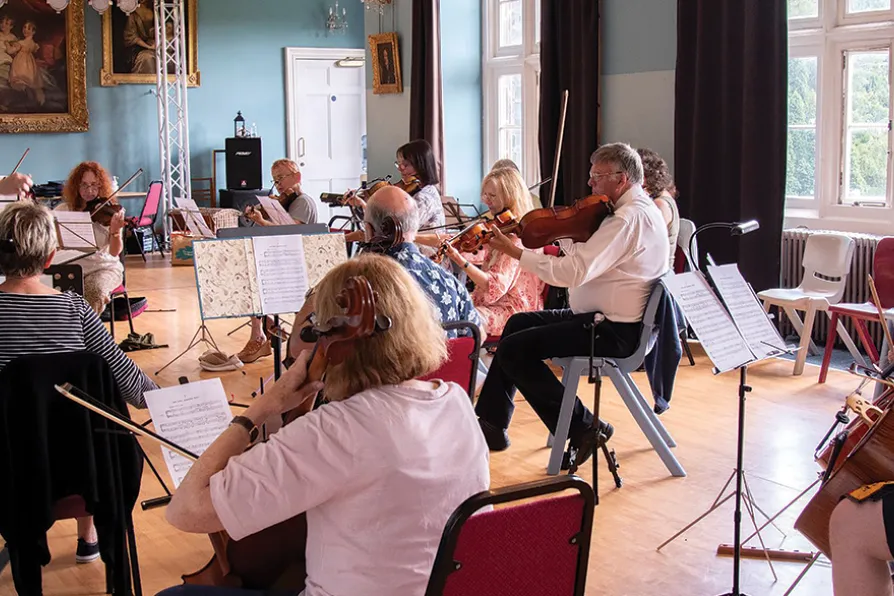In his second round-up, EWAN CAMERON picks excellent solo shows that deal with Scottishness, Englishness and race as highlights
Music for the many not the few
PHIL HARGREAVES sings the praises of a unique annual music encounter

 One of the many workshops
[Author supplied]
One of the many workshops
[Author supplied] MUSIC is possibly the most transformative of the arts, and since 1936 the Workers’ Music Association has been exploring the possibilities inherent in allying that with the transformative political project.
I am typing this still in the sparkly glow from the 2024 WMA Summer School, which finished last week — I am proud to be jazz tutor at the school, and a vice president of the association.
Most other summer schools focus on a particular style of music, or even a particular instrument. The WMA school, held at Ingestre Hall near Stafford, is far more ecumenical, offering various strands of classical music, folk, jazz and a wide range of opportunities for singers across the spectrum.
Similar stories

Chris Searle speaks to singer CARMEN SOUZA

SIMON DUFF is transported by the sweetly seductive tones of experimental guitarist Pat Metheny

WILL STONE relishes the subtle demonstations of political awareness that accompany two standout performers at Brighton’s Mutations festival

CHRIS SEARLE speaks to Glaswegian guitarist JIM MULLEN










